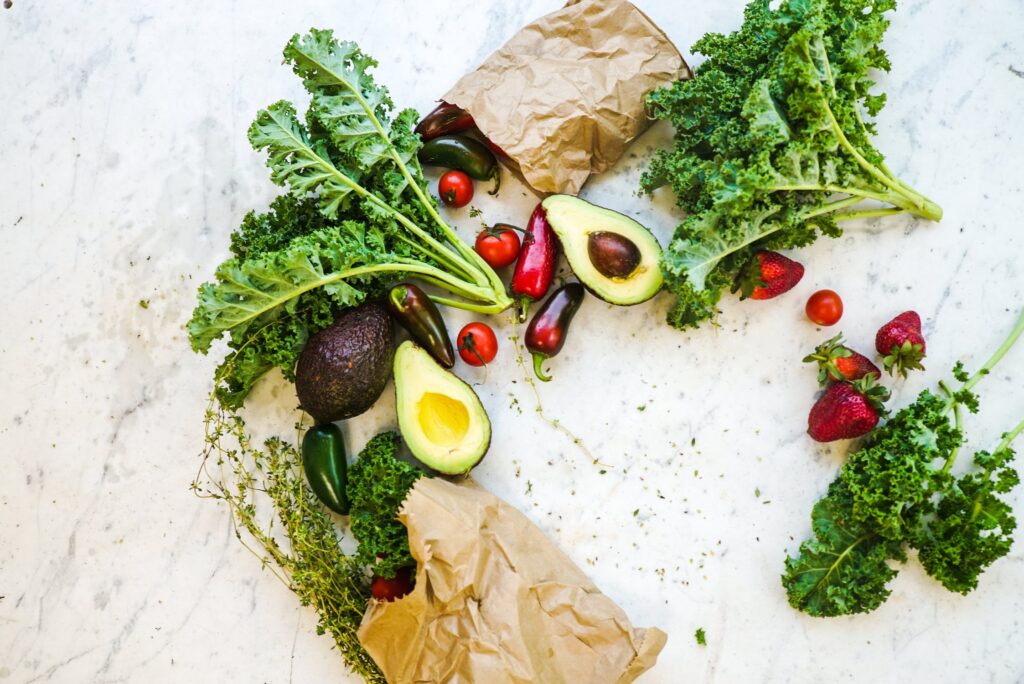The health and wellness world is going crazy about collagen and with good reason. As the most abundant protein, it presents a myriad of benefits for your body, from the outer layers of your skin all the way to the surfaces of individual cells. Despite this, vegans and vegetarians often choose to steer clear of collagen. After all, it is a protein, and Hannah Blanton notes that many tend to associate protein with meat.
However, we mustn’t forget that not only is protein one of our body’s most important building blocks, there are also different protein sources apart from meat. This is especially true for collagen.
What Exactly is Collagen?

Collagen acts as the main structural protein in the body. Live Science shares that it constitutes one-third of our body’s protein, and is categorized into five types. The first type accounts for 90% of the collagen in the body, which is found in the skin, bones, and connective tissues like tendons and ligaments. The second type is located in the cartilage, the third type is in the bone marrow and lymphoid tissues, the fourth one is found in the basement membrane, and the fifth is on cell surfaces. All in all, you can think of collagen as the glue that holds the body together.
Why Do You Need Collagen?

Although the body naturally creates collagen by breaking down dietary protein into amino acids, collagen production starts to slow down as early as the age of 25. Plus, other factors, such as sun exposure, environmental pollution, and unhealthy eating habits can cause a decline in collagen production. Without the proper amount of collagen in the body, so many of its crucial functions would fall apart.
Collagen plays a key role in keeping our skin looking firm and plump. The lack of collagen may lead to skin aging, as seen in the appearance of fine lines and facial sagging. The body would also have weaker bones, as they are mostly made of collagen. Also, studies found that collagen can improve physical activity while reducing joint pain. Moreover, collagen can help improve muscle mass, heart health, and hair and nail growth.
How Can You Incorporate Collagen into Your Plant-Based Diet?

With all of this in mind, boosting your collagen intake and production is essential for your health. But here’s the pickle: Those on a plant-based diet will need to work twice as hard to produce collagen, as it usually comes through meat, eggs, or seafood. This is why focusing on vitamins and nutrients that can improve your body’s own collagen production is crucial. Vitamin C and lysine are instrumental in this process.
Vitamin C, which is found in leafy greens and citrus fruits, helps promote the healing of connective tissues. Meanwhile, lysine is an amino acid that helps form collagen, and produce food like tomatoes, leeks, and avocados that are rich sources of this particular macronutrient. Lysine-rich food such as avocados can be beneficial for your skin, for making the skin softer. Plus, Hass avocados are a fantastic source of energy — all the more reason to exercise, as collagen can aid the recovery process, too.
And just like CBD capsules and pills, plant-based collagen also comes in the form of supplements. From powders to tablets and capsules, these forms of collagen are vegan, as they are created with genetically modified yeast and bacteria. So, how can you incorporate these supplements into your diet?
A popular method is placing powdered collagen into a cup of coffee, which more and more cafes are starting to offer. But if you’re really looking to bulk up, a higher dosage of collagen powder is advised. Canadian Running Magazine’s suggests eating a snack alongside a collagen powder-infused shake, to reap its protein-boosting benefits.



